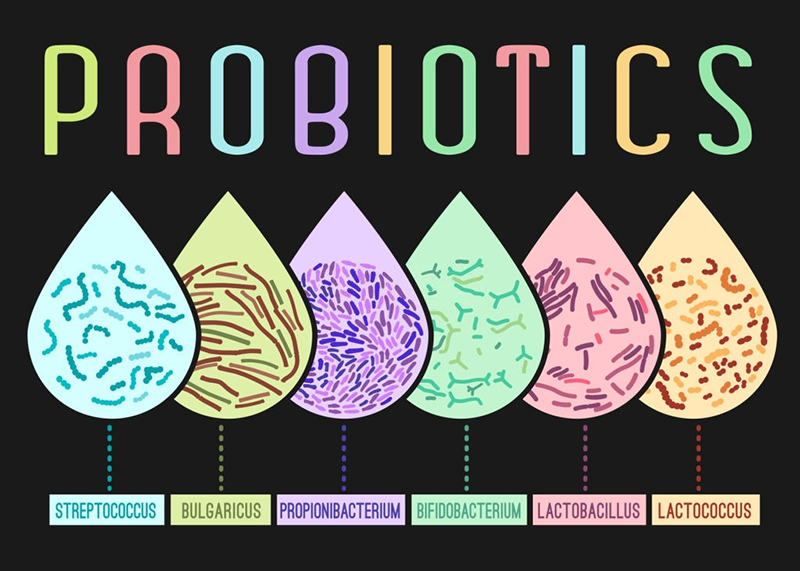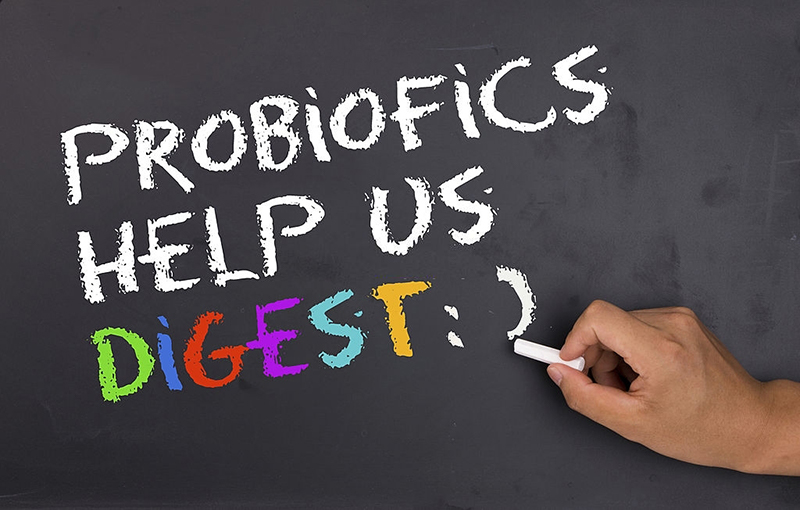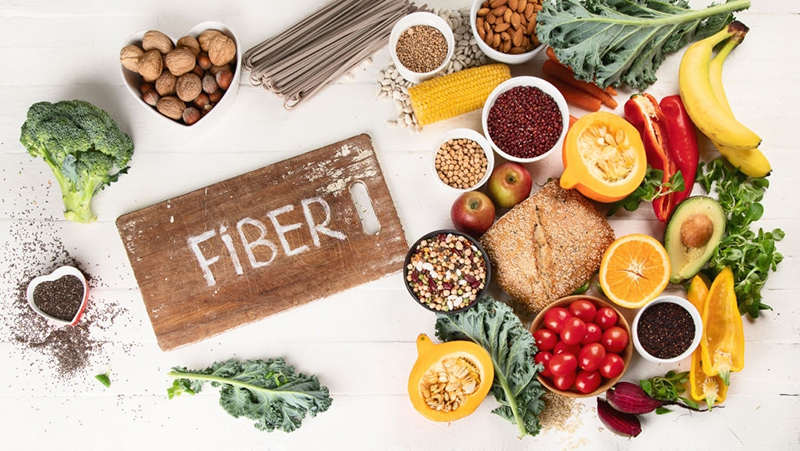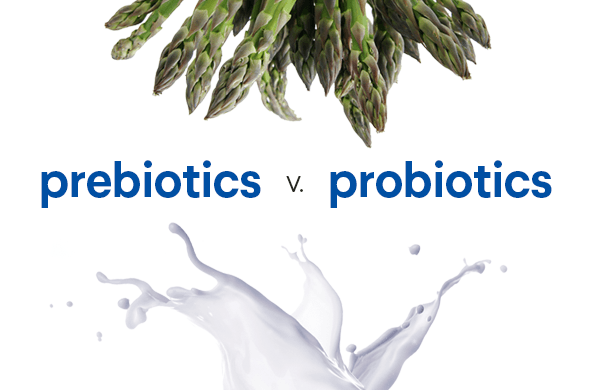What are probiotics, exactly?
Probiotics are live microorganisms that are considered “healthy” or useful to the functioning and health of your body. Many probiotics are comparable to the bacteria that live in your body naturally. You may already be ingesting some of these beneficial bacteria if you consume fermented foods like: probioticseverything.com which probiotics do what
some pickled vegetables, yogurt, and cheese
Since the early 1900s, the idea of consuming more beneficial microorganisms to improve health has been debated. Probiotics is a relatively new phrase. It’s made out of the Latin word “for” and the Greek word “life.” Probiotics have shown to provide health benefits, according to research. However, the data on all of the benefits of probiotics for healthy people or for the treatment of specific disorders is still inconclusive. probioticseverything.com which probiotics do what
Many different types of probiotics are now available in foods and supplements. Some experts have warned that the rapid development in probiotics marketing and use may have surpassed scientific studies on the advantages, according to the National Center for Complementary and Integrative Health Trusted Source. probioticseverything.com which probiotics do what
What are the advantages of probiotics?
According to Harvard Medical School, your bowels are home to an estimated 100 trillion bacteria from more than 500 different species. Your bacterial mix is one-of-a-kind, much like your fingerprint. Illness or stress can disrupt the bacterial balance, causing digestive and other issues.
Probiotics function by altering the composition of your gut bacteria or the metabolic activity of bacteria already present in your gut. In your intestine, the healthy bacteria outnumber the bad bacteria. This keeps the nasty germs from proliferating and infecting or inflaming the area. Too much yeast in the body, for example, can cause yeast infection, but a well-balanced gut biome will keep yeast at bay. probioticseverything.com which probiotics do what
Probiotics may aid digestion and aid in the extraction of nutrients from your meal. In addition to inhibiting or even killing dangerous bacteria, good bacteria may create enzymes or proteins. Probiotic strains that stimulate your immune system are also available. Some bacteria are required for hormone production, vitamin (e.g. vitamin K) absorption, and food absorption. Inflammation caused by a lack of gut bacteria may have a role in the development of type 1 diabetes in children. Biome is a reliable source.
According to research released by the American College of Gastroenterology, certain probiotic strains may: probioticseverything.com which probiotics do what
help with digestion
Aid in the prevention of diarrhea and the treatment of vaginal infections
autoimmune disorders can be avoided
skin problems are relieved
keep urinary infections at bay
But keep in mind that not everyone reacts to the same probiotic in the same way.
When taking antibiotics to treat a specific ailment, some doctors recommend taking probiotics. This is because medications destroy both good and bad bacteria, which can lead to diarrhea. The probiotics aid in the maintenance or restoration of a healthy intestinal equilibrium.
What are some of the most popular probiotics?
Probiotic species that are commonly found
Probiotic strains from two primary species are the most regularly consumed. These are also the most researched probiotics: probioticseverything.com which probiotics do what
Bifidobacteria is a type of bacteria found in many foods and supplements. They’re said to:
bolster your immune system
Helps to break down lactose into nutrients that the body can absorb by limiting the growth of dangerous bacteria in the intestine. probioticseverything.com which probiotics do what
Lactobacillus: Lactase, the enzyme that breaks down lactose, or milk sugar, is produced by this bacterial species. Lactic acid is also produced by these bacteria. Lactic acid aids in the control of bacterial populations. It also acts as a source of muscular fuel and aids mineral absorption. Lactobacillus bacteria can be found in the following:
mouth
vaginal canal
small intestine
Probiotic strains that are commonly used
Probiotic strains are species genetic subgroups. Each probiotic strain has a unique impact on the human body. On food or supplement labels, the probiotic strain names will be listed alongside the species name. Bifidobacteria and Lactobacillus, for example, are frequently abbreviated as B. or L. and paired with the strain name, such as acidophilus. This will provide you L. acidophilus, a probiotic. On food or supplement labels, this is how the name will appear.
Here are six probiotic strains commonly seen on food and supplement labels.
B. animalis: This strain is used in the Activia yogurt from Dannon. It aids digestion and protects against food-borne germs. It may also help to strengthen your immune system.
B. breve: This strain can be found in your intestines and vaginal area. It kills infection-causing bacteria or yeast in both places. It aids nutrient absorption by digesting carbohydrates. It also digests plant fiber by breaking it down. probioticseverything.com which probiotics do what
B. lactis is a bacteria found in raw milk. It’s a component of Nestle’s Good Start Natural Cultures probiotic baby formula. It can also be used as a beginning for the following dishes:
buttermilk
cottage cheese
other cheeses
B. longum is a bacterium that resides in your intestines. It aids in the digestion of carbohydrates and may also act as an antioxidant.
L. acidophilus is a type of bacteria that can be found in the small intestine and the vaginal canal. It aids digestion and may aid in the battle against vaginal bacteria. Yogurt and fermented soy products, such as miso, contain it. probioticseverything.com
L. reuteri is a type of bacteria that can be found in the intestine and mouth. According to one study, it reduced the oral germs that cause tooth decay. It’s also said to be beneficial to the digestive system.
Incorporating probiotics into your diet
What factors do you consider while deciding whether or not to include probiotics in your diet? The first step is to consult with your doctor to ensure that they are appropriate for you. Unless you have a damaged immune system or are extremely ill, probiotics are typically regarded safe to eat. Also, inquire about dose with your doctor or pharmacist.
You could start taking probiotics by simply adding some natural probiotic foods to your diet. You might wish to keep track of the probiotics you use and whether you notice any changes in your digestion or overall health over time. The following are some meal options that are readily available:
yogurt
fermented cheeses, such as:
gouda
cheddar
Swiss
parmesan
fermented vegetable products, such as:
miso
sauerkraut
Pickles
There are several commercial brands to choose from if you want to take a probiotic dietary supplement. Look for supplements that include the following ingredients:
Check the expiration date on the label of live cultures. The probiotic should be “alive” when you take it to be effective.
Multiple bacteria strains: When compared to a single probiotic, a combination of probiotics is usually more effective.
The amount of bacteria needed to create colonies is measured in colony-forming units, or CFUs.
Probiotics are nutritional supplements, which are not regulated by the Food and Drug Administration (FDA)Trusted Source. Furthermore, probiotic manufacturers are not required to prove their claims of effectiveness, and the FDA does not monitor these claims. The FDA’s Trusted Source is now working on a mechanism for detecting potentially dangerous contaminants in probiotics.
Related: Probiotics Have 6 Scientifically Validated Benefits







